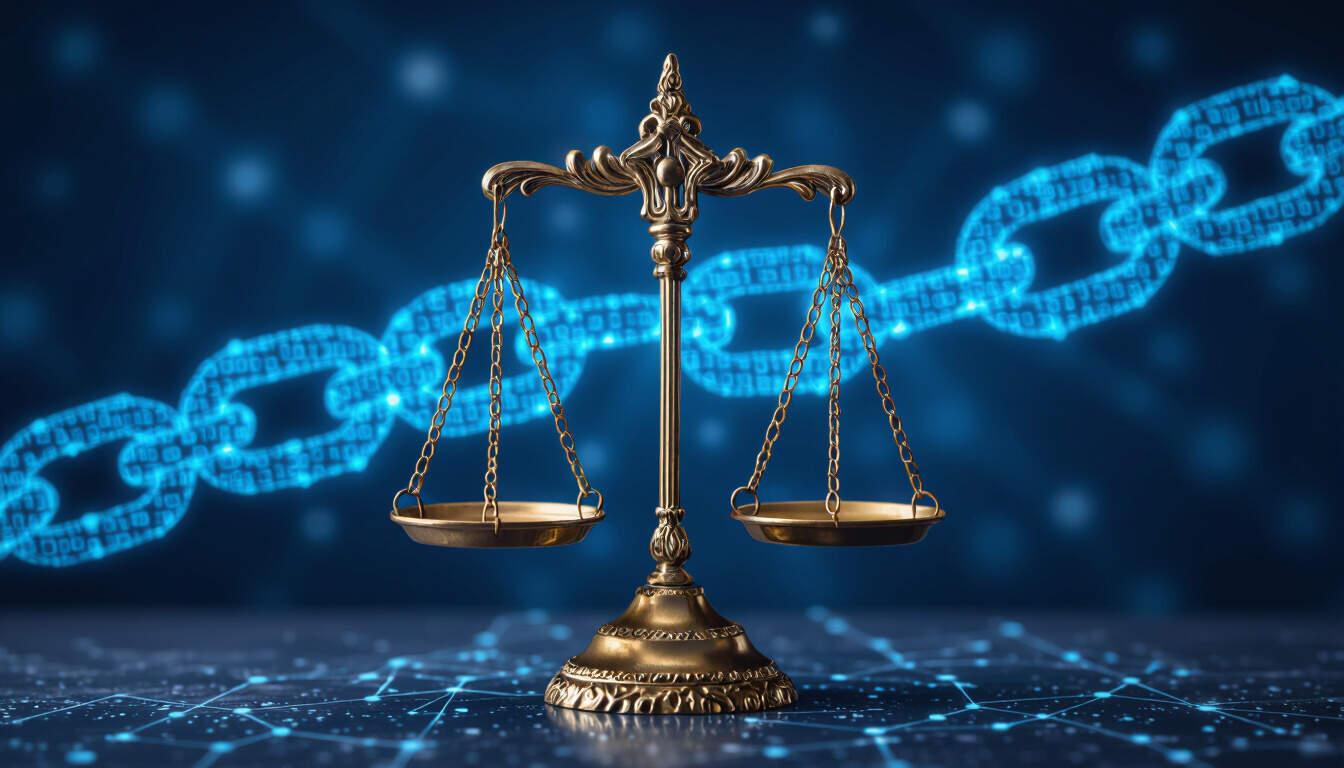Legal Challenges in Smart Contracts
 by Verner Mayer
by Verner Mayer
Smart contracts automate agreements on blockchain, but they raise significant legal questions. Issues include enforcement, jurisdiction, and regulatory compliance in fintech. This article examines these challenges and their implications for digital finance.

Smart contracts represent a key innovation in blockchain technology, enabling automated execution of agreements without intermediaries. These digital protocols encode terms directly into code, offering efficiency in transactions. However, they introduce various legal issues that demand attention from stakeholders in finance and technology.
The Basics of Smart Contracts
Smart contracts operate on blockchain platforms, where code executes predefined actions once conditions are met. For instance, in a financial deal, funds might transfer automatically upon delivery confirmation. This automation reduces costs and errors, making it appealing for investors and professionals in digital finance.
Yet, the intersection of code and law creates complications. One primary concern involves contract enforcement. Traditional contracts rely on courts for resolution, but smart contracts might not align with existing legal frameworks. If a dispute arises, determining how to interpret the code as a binding agreement poses challenges.
Enforcement and Interpretation
In practice, enforcing smart contracts can be tricky due to their immutable nature. Once deployed on the blockchain, the code cannot be altered, which might lead to irreversible errors or unforeseen outcomes. This rigidity contrasts with conventional contracts that allow amendments through negotiation.
Professionals in finance must consider how courts view these digital agreements. In some cases, smart contracts may not hold up if they fail to meet requirements for validity, such as clear intent or consideration. For example, a poorly written code could result in unintended financial losses, leaving parties without recourse.
Jurisdictional Hurdles
Another layer of complexity involves jurisdiction. Blockchain operates globally, meaning a smart contract could involve parties from different countries. Determining which laws apply becomes essential, especially in cross-border transactions common in fintech.
This global aspect complicates matters for investors seeking clarity. Without standardized international rules, disputes might fall into legal gray areas, potentially delaying resolutions and increasing costs. Tech enthusiasts exploring blockchain applications need to be aware of these variations to mitigate risks.
Regulatory Compliance
Regulations vary widely across regions, adding to the challenges. In the European Union, efforts like the proposed Markets in Crypto-Assets Regulation aim to provide guidelines for digital assets, including smart contracts. In contrast, other areas might lack specific rules, leaving uncertainty.
For finance professionals, ensuring compliance is critical. Smart contracts must adhere to anti-money laundering laws and data protection standards, for instance. Failure to do so could result in penalties or reputational damage, underscoring the need for careful integration of technology and regulation.
Security Risks and Disputes
Security remains a pressing concern. While blockchain offers transparency, vulnerabilities in smart contract code can be exploited, leading to hacks or theft. High-profile incidents have highlighted how flaws can cause significant financial harm.
Dispute resolution is another issue. Traditional methods like arbitration might not translate well to digital environments. Parties may need alternative mechanisms, such as decentralized courts, to handle conflicts efficiently.
Implications for Stakeholders
For investors, these legal issues influence decision-making. Understanding potential pitfalls allows for better risk assessment in blockchain investments. Tech enthusiasts can contribute by developing more secure and legally sound code.
Finance professionals benefit from interdisciplinary knowledge, combining legal expertise with technical skills. This approach helps in creating contracts that are not only functional but also defensible in court.
Looking Ahead
As blockchain technology advances, addressing these challenges will be vital. Ongoing developments in law and innovation could lead to clearer frameworks, fostering greater adoption in fintech. Stakeholders should stay informed and proactive to navigate the evolving landscape effectively.
In summary, while smart contracts offer transformative potential, their legal issues require careful consideration. By addressing enforcement, jurisdiction, compliance, and security, the sector can move towards more reliable applications in digital finance.
